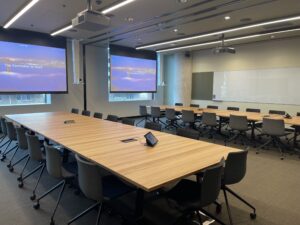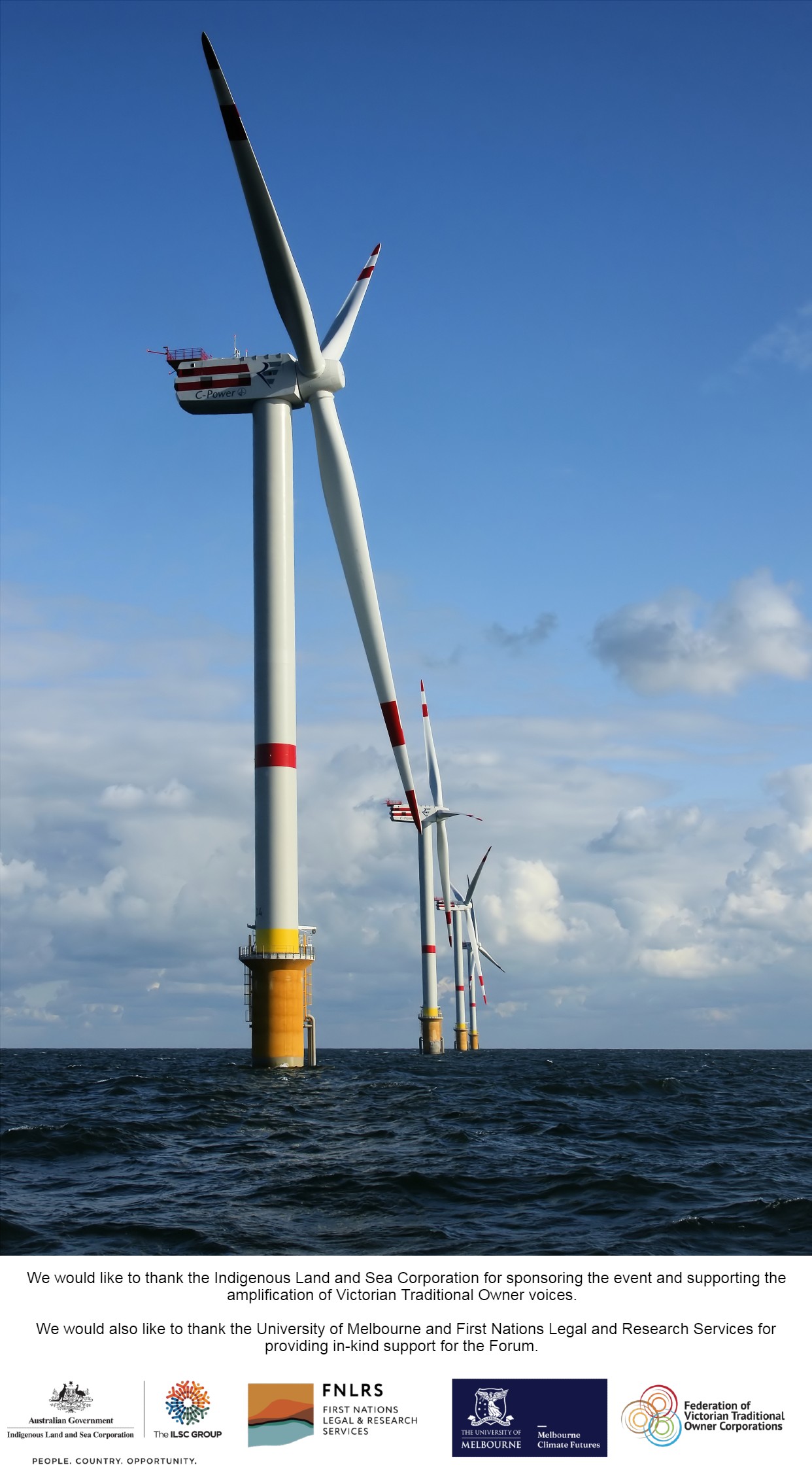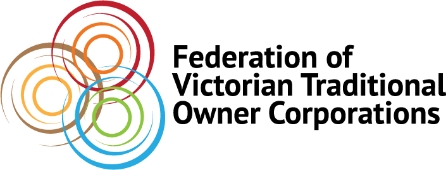The Forum aims to provide information to assist Traditional Owner groups to develop their positions in relation to Renewable Energy reforms, and identify areas of consensus which can be the basis of a communique and further advocacy to strengthen Traditional Owner positions.
The Forum will include presentations providing an overview and analysis of renewable energy regulatory context and examples of the strategies and policy work relevant to all Traditional Owner Corporations. The presentations will be followed by a Traditional Owner workshop to discuss perspectives on renewable energy policy issues and strategies to securing the best outcomes from the renewable energy transition. We seek to find areas of consensus that can be put forward as collective positions, while acknowledging the diversity positions and supporting each Nation’s sovereignty.
| When | Tuesday, 27th February 2024 |
| Where | University of Melbourne, Rooms M13 & M14, Mezzanine Level, Melbourne Connect, 700 Swanston St, Carlton |
| Who | Traditional Owner Corporation representatives, and a number of regional Traditional Owner knowledge holders |
| Format | In person, with options to join online for the morning presentations |
| Cost | Free for Traditional Owner Corporation representatives |
A briefing document will provide an overview and analysis of the renewable energy policy, legislative and regulatory context and the reform processes underway. It will highlight best practice case studies, key issues and options for potential recommendations for improving Traditional Owner outcomes through regulatory reforms.
| Timing | Topic | Presenter/ Facilitator |
| 9:00 | Welcome, acknowledgement and overview of the day and objectives, overview of renewable energy institutions and support agencies | Paul Paton, FVTOC |
| 9:20 | First Nations Clean Energy Strategy Process roundtable outcomes so far, next steps, and relevant Commonwealth Renewable Energy programs and reform agenda | Jonathan Kneebone, First Nations Clean Energy Network |
| 9:40 | Victorian government reform agenda, including Victorian Transmission Investment Framework update, Offshore Wind Update | Will Crawford, FNLRS/ Daniel McIntyre, FVTOC |
| 10:00 | Morning break | |
| 10:15 | Using native title rights in the renewable energy space as a platform to gain benefit, build business and protect Country | Rainer Mathews, FNLRS |
| 10:30 | Case studies of best practice Renewable Energy strategy, policy and developments in Victorian and beyond- updates on Traditional Owner Corporation Renewable Energy work | Traditional Owner Corporations |
| 11:00 | Initial analysis of Renewable Energy reform agenda and policy options | Emily Gerrard, Comhar Group |
| 11:30 | Reflection on morning session- discussion of Traditional Owners groups issues and positions | Traditional Owners/ FVTOC |
| 12:00 | Lunch | |
| 13:00 | Components of the renewable energy regulatory environment to leverage Traditional Owner objectives and outcomes- agreement making, benefit sharing, protection and management of Country | Emily Gerrard, Comhar Group |
| 13:10 | Discussion and workshopping of Traditional Owners groups issues and positions | Traditional Owners/ FVTOC |
| 14:00 | Afternoon break | |
| 14:15 | Workshop Traditional Owner Reform Agenda recommendations and communique | Traditional Owners/ FVTOC |
| 15:30 | Next steps: workshop contents of future Victorian Traditional Owner Renewable Energy workshop series | Traditional Owners/ FVTOC |
| 16:50 | Concluding remarks/ other business | FVTOC |
| 17:00 | Close |
Emily Gerrard Director and a Principal Lawyer, Comhar Group
- As the Director and a Principal Lawyer at Comhar Group, Emily works with an experienced team who have worked on a variety of major development projects, government reform initiatives and negotiations for indigenous groups. With national and international networks, Comhar Group is at the front of climate change developments and their application in Australia and the region, including pathways for incentivising renewable and clean energy.
- Emily specialises in environmental and climate change law and has extensive experience in native title and land rights matters, including large scale renewable energy agreement-making. She works with ASX-listed companies, governments of all persuasions, and Indigenous peoples across the land and wrote a thesis on the application of Native Title to Coastal Waters. Emily has taken an active role in ensuring that legislation for carbon and biodiversity repair projects protect and advances the rights and interests of Indigenous peoples. She is an Affiliated Expert with the UK Government’s UK PACT (Partnering for Accelerated Climate Transitions) and member of the Board of the Carbon Market Institute.
Jonathan Kneebone Director of Policy and Engagement, First Nations Clean Energy Network
- Jonathan is Director Policy and Engagement at the First Nations Clean Energy Network, a national network established to ensure First Nations participate in and benefit from Australia’s clean energy transition. He is an experienced leader, lawyer, advocate and strategist with over 20 years’ working across the private, public and community sectors, and in First Nations-controlled organisations and alongside First Nations people and communities across Australia.
Rainer Matthews Principal Legal Officer, First Nations Legal and Research Services
- FNLRS uses interdisciplinary teams to help Victorian First Nations to navigate their formal recognition journeys, and to use their legal rights to protect Culture and Country, create businesses and build sustainable communities.
- Rainer has worked as a native title lawyer since 2006, representing native title groups around Australia in complex negotiations including in relation to more than 50 large mining and mining infrastructure projects, as well as on public infrastructure agreements, land and sea management structures, native title claims, business and community development projects and corporate governance issues.
Paul Paton CEO, Federation of Victorian Traditional Owner Corporations
- Paul is a Gunnai and Monaro man with a long involvement in reconnecting individuals and communities with language, culture and identity. He has held several executive roles and directorships including as the Executive Officer at the Victorian Aboriginal Corporation for Languages and as a Director on the Board of First Nations Legal & Research Services.
- Paul is committed to building on the Federation’s success as a key organisation that strengthens the voice of Traditional Owners in Victoria. He brings his knowledge, skills and networks to work closely with Traditional Owners across the State to support their aspirations for community and Country whilst taking up the challenge for self-determination and Treaty.
The renewable energy transition is progressing at a rapid pace. If we get the settings right, the transition can result in significant economic development opportunities and improved energy security for Traditional Owners, as well as support the rapid de-carbonisation of the Australian economy.
The transition will also result in a radical transformation of Victorian landscapes, and Traditional Owners are seeking to ensure that the scale of development does not cause undue impacts on cultural values of land and sea Country by being actively involved in the planning and management of renewable energy infrastructure.
There are a number of planning, policy and legislative reform processes underway in the first half of 2024 at both the Commonwealth and Victorian level which will be key drivers of outcomes for Traditional Owners in the Renewable Energy transition. These include:
- The preparation of the Federal government’s First Nations Clean Energy Strategy, with an accompanying initial funding package to start its implementation. The Strategy is planned to be finalised in the first quarter of 2024 and launched in May 2024.
- Victorian Transmission Investment Framework- Progressing key components including defining renewable energy zone (REZ) priority areas, Strategic Land Use Assessment Methodology, arrangements for dedicated Traditional Owner benefits from new REZ transmission, generation and storage projects.
- Offshore Wind Implementation – Reforms of the legislative and regulatory context to create the enabling environment for offshore renewable energy infrastructure.
Please register to attend the event in person by 16th February 2024.
To register attendance, email [email protected]
Please include in the email:
- the number of people attending in person from your organisation,
- whether others will join online for the morning presentations,
- whether you will require assistance with covering transport and accommodation costs
- any dietary and accessibility requirements.
We strongly encourage each Traditional Owner Corporation to send a number of staff to attend the forum in person to be able to participate in the workshop sessions. However, there will be options to join for the presentations in the morning session.
Attendance is free for registered attendees. Additionally, the forum partners can cover the costs of transport and accommodation for up to 2 participants from each Traditional Owner Corporation on a needs basis.
To request this additional support, email [email protected]
University of Melbourne, Rooms M13 & M14, Mezzanine Level, Melbourne Connect, 700 Swanston St, Carlton



